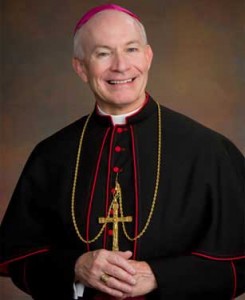USCCA26 Chapter 23 Life In Jesus part 1
Podcast: Play in new window | Download (Duration: 28:31 — 26.1MB) | Embed
Subscribe: Apple Podcasts | Spotify | Amazon Music | Android | Pandora | iHeartRadio | JioSaavn | Podchaser | Gaana | Podcast Index | Email | TuneIn | Deezer | Anghami | RSS | More
Archbishop Lucas offers insights on the US Catholic Catechism for Adults Chapter23:
Made in the Image of God
The most basic principle of the Christian moral life is the awareness that every person bears the dignity of being made in the image of God. He has given us an immortal soul and through the gifts of intelligence and reason enables us to understand the order of things established in his creation. God has also given us a free will to seek and love what is true, good, and beautiful. Sadly, because of the Fall, we also suffer the impact of Original Sin, which darkens our minds, weakens our wills, and inclines us to sin. Baptism delivers us from Original Sin but not from its effects—especially the inclination to sin, concupiscence. Within us, then, is both the powerful surge toward the good because we are made in the image of God, and the darker impulses toward evil because of the effects of Original Sin. But we should always remember that Christ’s dying and rising offers us new life in the Spirit, whose saving grace delivers us from sin and heals sin’s damage within us. Thus we speak of the value, dignity, and goal of human life, even with its imperfections and struggles. Human life, as a profound unity of physical and spiritual dimensions, is sacred. It is distinct from all other forms of life, since it alone is imprinted with the very image of its Creator.
United States Conference of Catholic Bishops (USCCB).
The Most Reverend George J. Lucas leads the Archdiocese of Omaha.
For other episodes in the visit our Archbishop George Lucas page
This program is based on:
More information can be found here.
We wish to thank the USCCB for the permissions granted for use of relevant material used in this series.
[ezcc]




